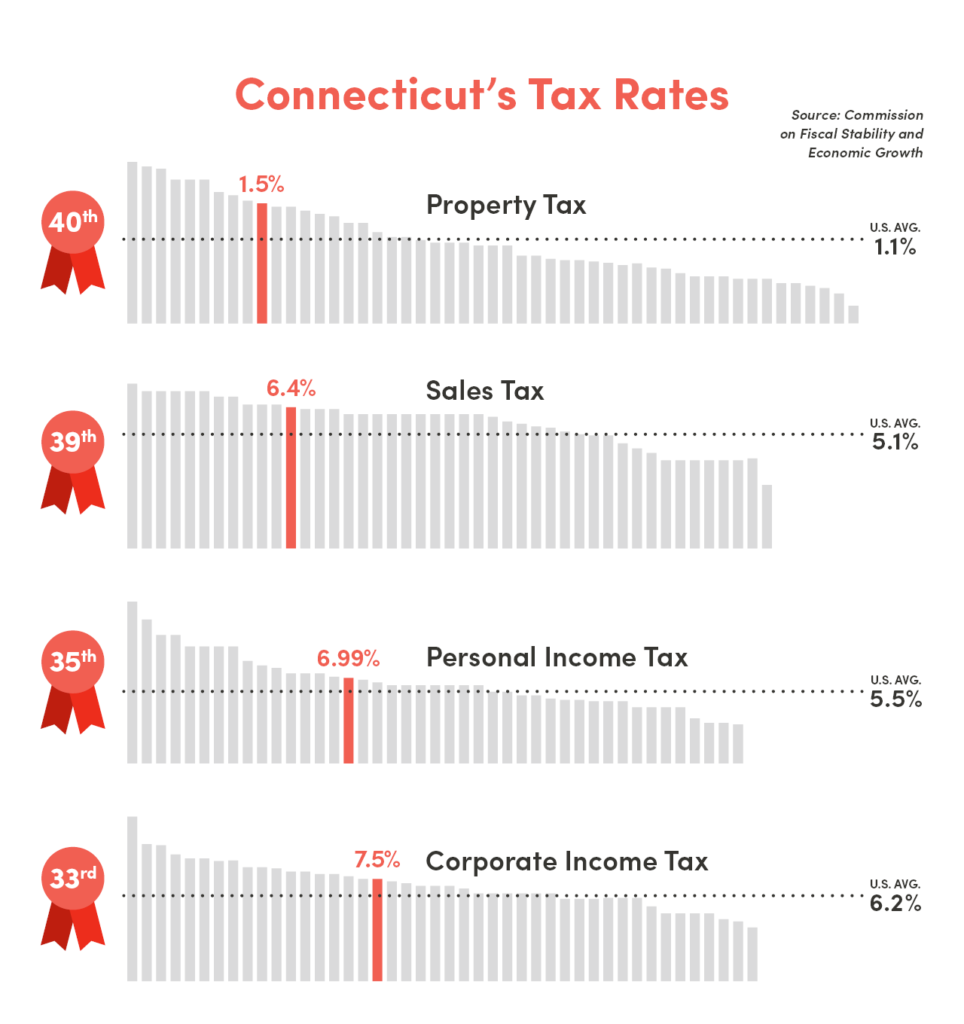Budget Committees Approve Higher Taxes, Spending

Two key legislative committees approved budget packages this week that increase taxes and spending, setting the stage for negotiations with Gov. Ned Lamont in the closing weeks of the legislative session.
The Appropriations Committee approved a two-year, $43.3 billion spending package on a 32-17 party-line vote April 29.

That package is slightly larger than the $43.1 billion proposal Lamont presented to lawmakers earlier this year.
The committee’s plan increases spending by 1.9% in the first year and by 3.6% in year two.
The legislature’s Finance, Revenue, and Bonding Committee May 1 voted 29-21 to increase taxes by $1.01 billion in fiscal 2020 and by $1.33 billion the following year.
Democrat state representatives Buddy Altobello (D-Meriden) and Stephen Meskers (D-Greenwich) joined all Republican committee members in opposing the measure.
The committee rejected a number of the governor’s revenue proposals, including limiting his broad expansion of the sales tax to just five industries—parking, interior design, safety apparel, ride-sharing services, dry cleaning, and non-coin operated laundromats.
‘More of the Same’
When the tax and spending packages are viewed together, it’s clear lawmakers are pushing out more of the same while missing a key opportunity to turn the state around.
Both the governor and the legislature rely on revenue hikes to close the state’s projected two-year, $3.5 billion budget deficit.
The Appropriations Committee included funding to hike the $10.10 hourly minimum wage to $15 and adopt paid family and medical leave.
It’s clear lawmakers are pushing out more of the same while missing a key opportunity to turn the state around.
The Appropriations Committee’s budget includes $1 million for the Manufacturing Pipeline Initiative.
While the plan allocates more money for education, it does not fund Lamont’s request to hire consultants to assist school districts with regionalization and shared services.
It also includes $2.25 million to fund start-up costs for a controversial proposal to open the state employee healthcare plan to small businesses.
Economic Focus?
Lamont and lawmakers must now negotiate those items as well as the governor’s plan to shift a portion of teacher pension costs onto cities and towns.
While the legislature’s proposed budget package is not the biggest tax hike Connecticut has seen in recent years, lawmakers must consider our lackluster economy.
In 2018, Connecticut businesses created half the number of jobs the state’s Labor Department projected. In addition, the first three months of 2019 saw the loss of 3,400 jobs.
While the state’s GDP did grow by 1% in 2018, that pales in comparison with the 2% growth in other New England states and the 2.9% growth in the rest of the country.
With a new governor and many new legislators, there was hope 2019 would see a continuation of the progress made with the adoption of a bipartisan budget in 2017.
This year represents an opportunity to show businesses Connecticut is moving away from the tax and spending policies of the past, and is ready to take actions that encourage investment and growth.
Unfortunately, the budget package falls short of that mark, instead relying heavily on new revenue or opting to extend taxes set to expire in the coming year.
Unsustainable Course
For example, the budget imposes a new 2% surcharge on the capital gains on high-income taxpayers—those most capable of leaving Connecticut.
While most states keep capital gains taxes low to encourage investment, Connecticut is moving in the opposite direction.
The budget plan also extends the 10% corporate surcharge to the 2019 and 2020 income years. Although the surcharge was set to expire altogether, at least lawmakers agreed to continue it on a temporary basis.
There is still plenty of time for the legislature to change course and prioritize getting our state’s fiscal house in order.
Taxes on tobacco products, alcohol, and restaurant meals will increase. Single-use plastic bags will have a 10-cent fee, and filing fees for pass-through entities will increase.
While lawmakers want to enact policies they campaigned on, Connecticut’s economy still trails far behind the rest of the country.
There is still plenty of time for the legislature to change course and prioritize getting our state’s fiscal house in order.
The current course has proven, time and again, to be unsustainable.

For more information, contact CBIA’s Eric Gjede (860.480.1784) | @egjede
RELATED
EXPLORE BY CATEGORY
Stay Connected with CBIA News Digests
The latest news and information delivered directly to your inbox.


